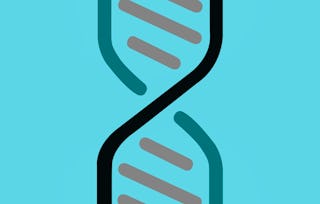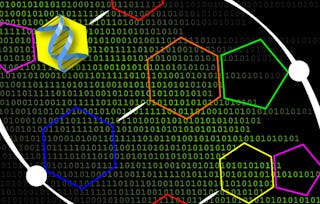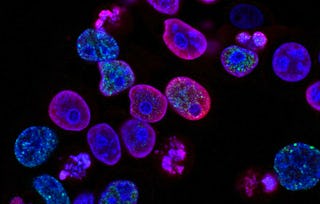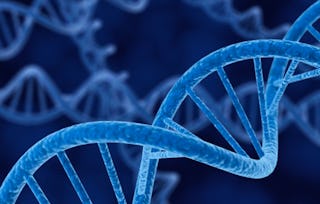While the human genome sequence has transformed our understanding of human biology, it isn’t just the sequence of your DNA that matters, but also how you use it! How are some genes activated and others are silenced? How is this controlled? The answer is epigenetics.

Ends soon: Gain next-level skills with Coursera Plus for $199 (regularly $399). Save now.

Epigenetic Control of Gene Expression

Instructor: Dr. Marnie Blewitt
53,329 already enrolled
Included with
(841 reviews)
Skills you'll gain
Details to know

Add to your LinkedIn profile
See how employees at top companies are mastering in-demand skills

There are 7 modules in this course
An introduction to and definition of epigenetic control of gene expression, and its importance in normal development. We will learn what chromatin is, and how its composition and packaging can alter gene expression. We’ll also discuss the best-characterised epigenetic modification, DNA methylation, and how it is not only implicated in regulating gene expression, but also in maintaining genome stability.
What's included
7 videos5 readings1 assignment
We’ll discuss the molecular mechanisms for regulating gene expression in some detail, from how the DNA is packaged at a local level, right up to how the chromatin is positioned within the nucleus. We’ll learn about the chromatin modifications implicated in gene silencing and activation, the role of non-coding RNA, and higher order chromatin structures. This week will provide you with a good understanding of the basic mechanisms that will help you understand the processes we discuss throughout the rest of the course.
What's included
9 videos1 reading1 assignment
X chromosome inactivation is a really well-characterised epigenetic process that is now used as a model system to study epigenetic processes that are relevant more broadly. This is because it uses many epigenetic mechanisms, at many levels, to achieve really stable silencing of a whole chromosome. We’ll learn about this process and how it occurs in a mouse in great detail, which will greatly add to the mechanistic understanding gained in week two. We will then briefly discuss alternate mechanisms for dosage compensation that occur in other organisms.
What's included
12 videos1 reading1 assignment
We’ll learn about the two important periods during development for the erasure and resetting of the epigenome. There are two well-characterised features that are treated differently during epigenetic reprogramming; imprinted genes and repeats. We’ll learn about mechanisms for genomic imprinting, and study three examples in more depth.
What's included
6 videos1 reading1 assignment
We start to look at some of the big areas of interest in human epigenetics, including environmental influence on the epigenome, reprogramming of somatic cells back to stem cells, cloning, and potential transgenerational epigenetic inheritance. We’ll discuss what is known to happen to the epigenome during these process, and look at some seminal case studies.
What's included
6 videos1 reading1 assignment
A look at the mechanisms underlying some of the observations we discussed in week 5, through the study of model organisms. We’ll learn about metastable epialleles, which have allowed the study of transgenerational epigenetics in mice, and provided some evidence for transgenerational epigenetics in mammals.
What's included
8 videos1 reading1 assignment
This week we’ll bring together much of what we’ve learned in previous weeks of the course, to understand how the epigenome is affected, and can also affect, cancer development and progression. We’ll then go on to discuss the potential therapeutic benefits that can come from using epigenetic biomarkers, and targeting epigenetic modifiers in cancer.
What's included
11 videos3 readings1 peer review
Instructor

Offered by
Explore more from Basic Science
 Status: Preview
Status: PreviewUniversity of Illinois Urbana-Champaign
 Status: Free Trial
Status: Free TrialJohns Hopkins University
 Status: Free Trial
Status: Free TrialUniversity of Colorado Boulder
 Status: Preview
Status: PreviewAmerican Museum of Natural History
Why people choose Coursera for their career




Learner reviews
841 reviews
- 5 stars
87.05%
- 4 stars
10.80%
- 3 stars
1.42%
- 2 stars
0.11%
- 1 star
0.59%
Showing 3 of 841
Reviewed on Jun 18, 2016
The course is very interesting for those who like Genetics. The lectures are delivered in an understandable manner, and the motion pictures make everything clear right away.
Reviewed on Dec 10, 2016
Excellent course by an expert in the field. Full appreciation requires a background in biochemistry and genetics, but still a lot can be learned by anyone with interest.
Reviewed on Nov 16, 2018
This course is well taught and some important concepts are repeated over and over again during the course so the concept lingers in the brain as if it was there already.
Frequently asked questions
To access the course materials, assignments and to earn a Certificate, you will need to purchase the Certificate experience when you enroll in a course. You can try a Free Trial instead, or apply for Financial Aid. The course may offer 'Full Course, No Certificate' instead. This option lets you see all course materials, submit required assessments, and get a final grade. This also means that you will not be able to purchase a Certificate experience.
When you purchase a Certificate you get access to all course materials, including graded assignments. Upon completing the course, your electronic Certificate will be added to your Accomplishments page - from there, you can print your Certificate or add it to your LinkedIn profile.
Yes. In select learning programs, you can apply for financial aid or a scholarship if you can’t afford the enrollment fee. If fin aid or scholarship is available for your learning program selection, you’ll find a link to apply on the description page.
More questions
Financial aid available,
¹ Some assignments in this course are AI-graded. For these assignments, your data will be used in accordance with Coursera's Privacy Notice.





